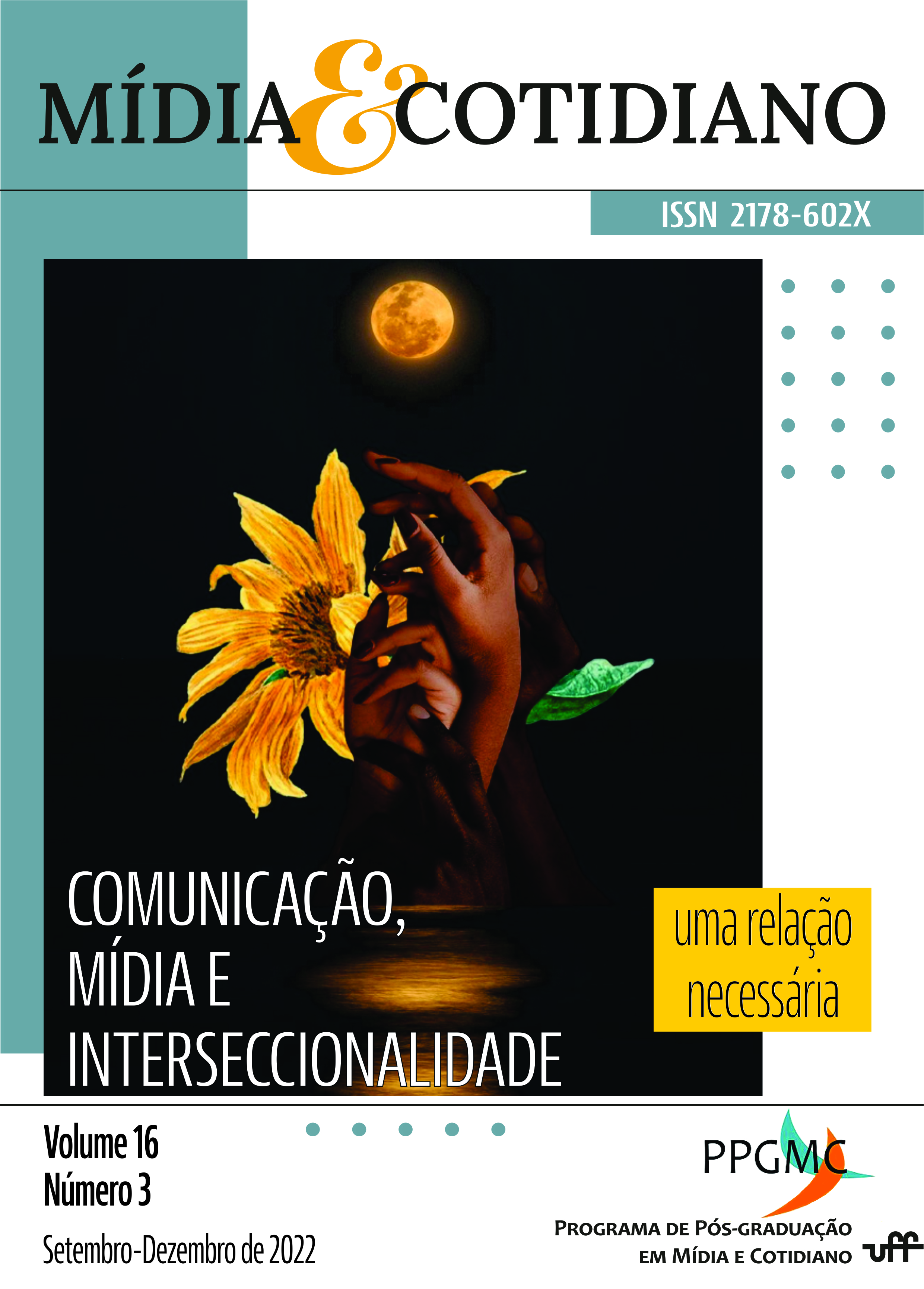Construindo poder narrativo para justiça social: entrevista com Shanelle Matthews
DOI:
https://doi.org/10.22409/rmc.v16i3.55518Palavras-chave:
Narrativa, Mídia, Justiça Social, Racismo, Movimentos SociaisResumo
Falar sobre transformar narrativas se tornou quase um lugar comum no campo da comunicação por direitos. Mas o que isso quer dizer e como pode estar realmente a serviço da justiça social? Para Shanelle Mathews, é imprescindível que movimentos sociais produzam “poder narrativo”, de modo que possam “expandir a percepção coletiva do que é social, econômica e politicamente possível”. A entrevistada é ativista, comunicadora e professora, e se dedica a colaborar com ativistas, organizações e campanhas de justiça social para inspirar ações e construir poder narrativo. É diretora de Comunicação do Movimento por Vidas Negras (Movement for Black Lives - M4BL), fundadora da Radical Communicators Network (Rede de Comunicadores Radicais - RadComms) e professora da The New School, universidade em Nova Iorque. Suas ideias dão pistas para o enfrentamento dos desafios comunicacionais dos movimentos sociais progressistas, rumo à construção de “uma narrativa robusta que sirva de sustentação para um futuro mais libertador".
Downloads
Referências
KIM, Jee; HYNES, Liz; SHIRAZI, Nima. Foreword. In: Toward New Gravity: Charting a Course for the Narrative Initiative. 2017. Disponível em https://narrativeinitiative.org/wp-content/uploads/2019/08/TowardNewGravity-June2017.pdf Acesso em: 06 ago. 2022.
PLUMMER, Ken. Narrative power: The struggle for human value. Polity Press, 2019.
Downloads
Publicado
Edição
Seção
Licença
Aviso de Direito Autoral Creative Commons
1. Política para Periódicos de Acesso Livre
Autores que publicam nesta revista concordam com os seguintes termos:- Autores mantém os direitos autorais e concedem à revista o direito de primeira publicação, com o trabalho simultaneamente licenciado sob a Licença Creative Commons Attribution que permite o compartilhamento do trabalho com reconhecimento da autoria e publicação inicial nesta revista.
- Autores têm autorização para assumir contratos adicionais separadamente, para distribuição não-exclusiva da versão do trabalho publicada nesta revista (ex.: publicar em repositório institucional ou como capítulo de livro), com reconhecimento de autoria e publicação inicial nesta revista.
- Autores têm permissão e são estimulados a publicar e distribuir seu trabalho online (ex.: em repositórios institucionais ou na sua página pessoal) a qualquer ponto antes ou durante o processo editorial, já que isso pode gerar alterações produtivas, bem como aumentar o impacto e a citação do trabalho publicado (Veja O Efeito do Acesso Livre).


